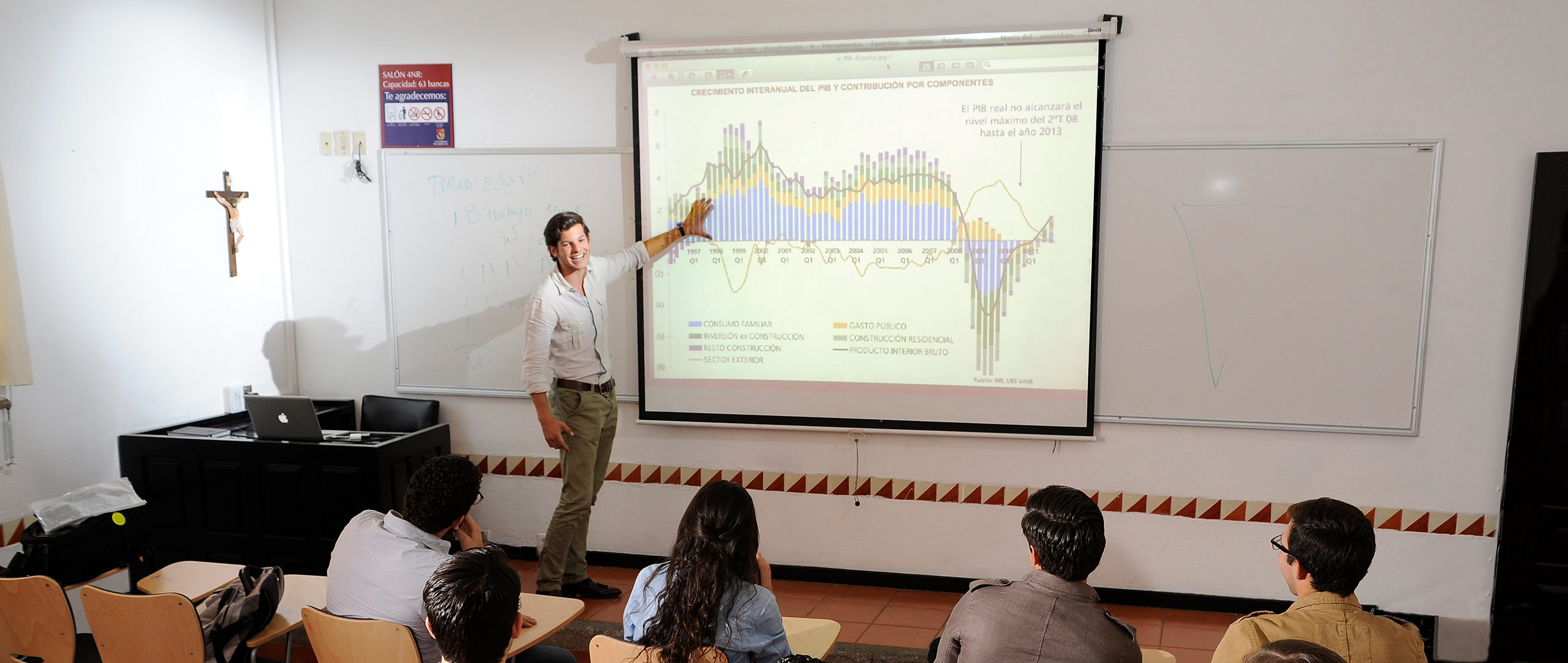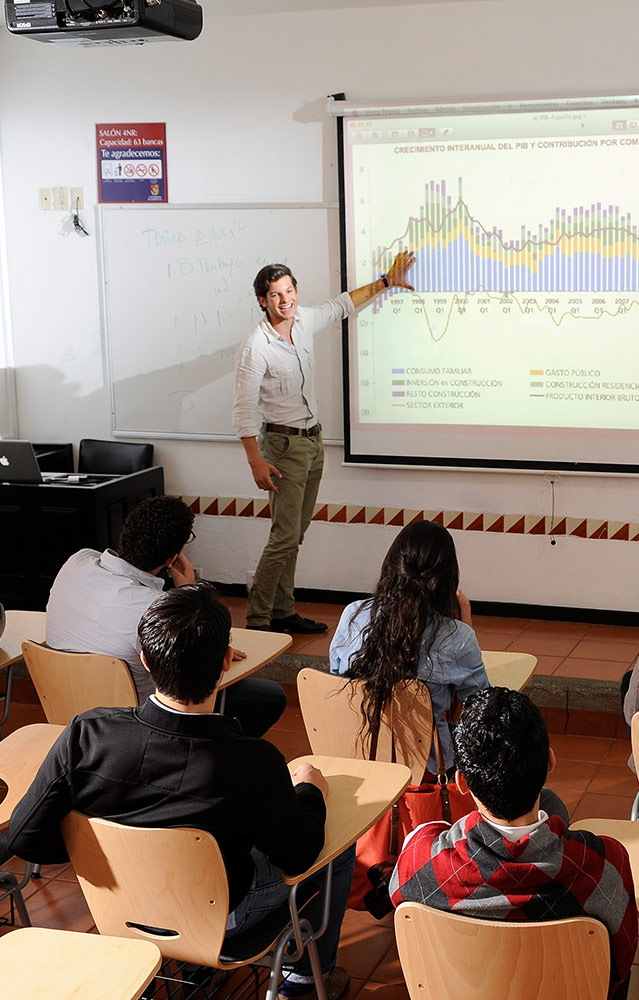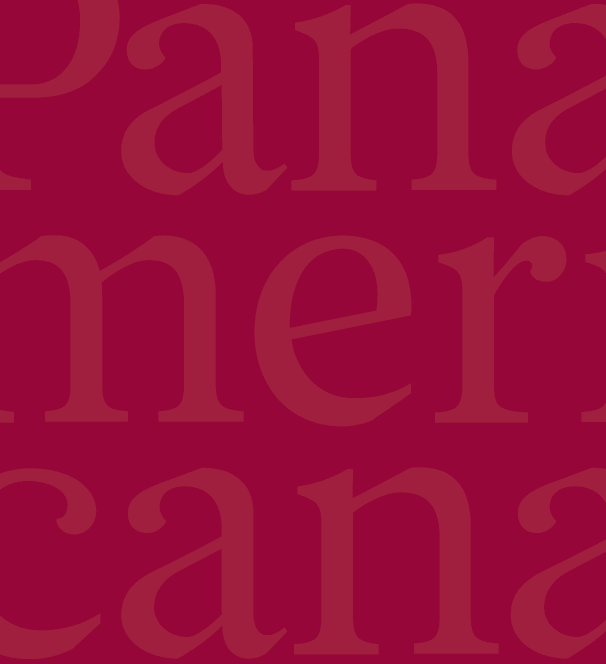

Quantitative Finance Program
Our Bachelor's degree in Quantitative Finance aims to provide you with a high level of specialisation in finance along with a strong quantitative foundation.
To achieve this and make you a professional expert in this area, we rely on statistics, mathematics, analysis and knowledge of data science.
We also seek to offer you a comprehensive professional training through subjects such as:
- Law
- Accounting
- Administration
- Humanities
- Soft skills
- Financial ethics
As part of the curriculum we offer the necessary preparation for you to obtain the Chartered Financial Analyst - Certified Financial Analyst (CFA LEVEL 1), the most complete and recognized international certificate in the world of finance.
Thanks to our bilingual curriculum, you will acquire a financial language in Spanish and English.
The job field is very broad with many branches and profiles. Our graduates can develop in any of them, including those that require a solid mathematical background.
That is why our students can work in companies or corporations in both the public and private sectors, for example:
- Corporate and SMEs
- Consulting Firms
- Stock Market
- Derivatives Market
- Commercial Banking
- Development Banking
- Lessors
- Factoring
- Investment Funds
- Afores
- Federal (SHCP), State and Municipal Governments
- Regulatory bodies: Bank of Mexico, CNBV,CONSAR
- International Financial Institutions (World Bank, Inter-American Development Bank, International Monetary Fund)
Always with the humanistic and ethical touch that characterizes Universidad Panamericana.
Main Certifications
As part of the curriculum, in the last semesters of the course we offer preparation for the CFA LEVEL 1 (Chartered Financial Analyst - Certified Financial Analyst), which is the most complete and recognized international certificate in the world of finance.
RVOE
SEP 20210687 dated 4/22/2021, plan 2020, school-based modality, UP City site.
ENTRY PROFILE
As a candidate for the Bachelor's degree in Quantitative Finance you should have the following characteristics:
- A taste for mathematics and its application
- A vocation to build a better world through finance.
- Analytical skills
- Numerical reasoning
- Leadership
- Working in a team and under pressure
- Decision-making with innovative solutions
- Planning and design of problem-solving strategies
- Proactive and persevering
- Promoter of change
- Multicultural
GRADUATE PROFILE
A graduate of a degree in Quantitative Finance is able to:
- To contribute to the development of Mexico and the world with financial solutions to improve the quality of life with an ethical vision.
- Design strategies and financial products for decision-making in uncertain environments.
- Leading in the financial world
- Generate growth for public and private organisations as well as in financial markets through financial innovation.
- Manage risk hedges.
- Working in teams in national and international contexts.
FIRST SEMESTER
- History of Culture
- Oral and Written Communication
- Advanced Algebra
- Introduction to Microeconomics
- Personal Finance
- General Aspects of Labor and Commercial Law
- Information Systems
SECOND SEMESTER
- Person and Society
- Interest Theory
- Differential Calculus
- Macroeconomics
- Accounting Process
- Research Workshop
- Strategic Management
THIRD SEMESTER
- Ethics
- Financial Analysis
- Integral Calculus
- Socioeconomic and Political History
- Capital Markets and Debt
- Mexican and International Financial Law
- Management Approaches
FOURTH SEMESTER
- Theological Anthropology I
- Corporate Finance
- Linear Algebra
- Financial Ethics I
- Cost and Budget Analysis
- Probability and Descriptive Statistics
- Algorithm Analysis and Design
FIFTH SEMESTER
- Theological Anthropology II
- Tax Law and Corporate Income Taxes
- Inferential Statistics
- Financial Ethics II
- Corporate Banking
- Object Oriented Programming
- Portfolio Management
SIXTH SEMESTER
- Social Philosophy
- Investment Projects
- Internships
- Public Financial Management
- Fiscal Analysis in Financial Decisions
- International Finance
- Massive Data
SEVENTH SEMESTER
- Man and the Contemporary World
- Financial Derivatives
- Differential Equations and Optimization
- Risk Management
- Elective I
- Behavioral Finance
- Fundamentals of Econometrics
EIGHTH SEMESTER
- Time Series
- Financial Engineering
- Stochastic Calculation
- Business Valuation
- Alternative Investments
- Elective II
- Elective III
NINTH SEMESTER
- Financial Risks
- Financial Models
- Elective IV
- Elective V
- Elective VI
- Elective VII
- Elective VIII
OPTIONAL SUBJECTS
- CFA N1 Course
- Human Resources Management
- Development of Personal and Managerial Competencies
- Strategy and Negotiation
- Green Finance
- Seminar on Business Creativity and Innovation
- Fraud Prevention
- Private Equity and Venture Capital
- Mergers and Acquisitions
- GMAT
- Global Strategy Seminar
- Crisis Management and Media Training
- Entrepreneurship Seminar
- International Human Talent Management Seminar
- Strategic Sales Management
- Digital Marketing
- Organizational Strategy and Corporate Governance
- Real Estate Markets
- Management Action Analysis Seminar
Admissions




